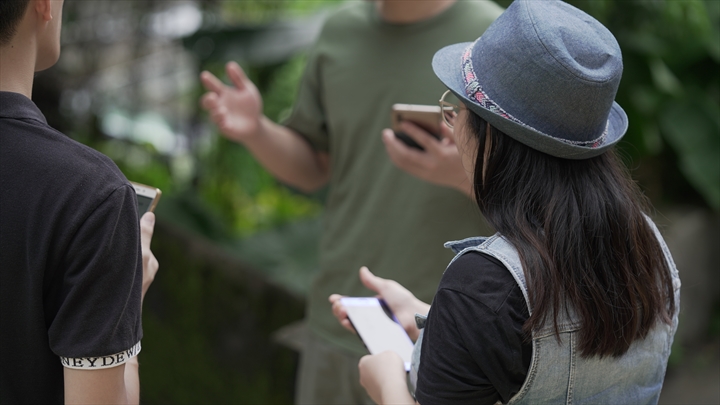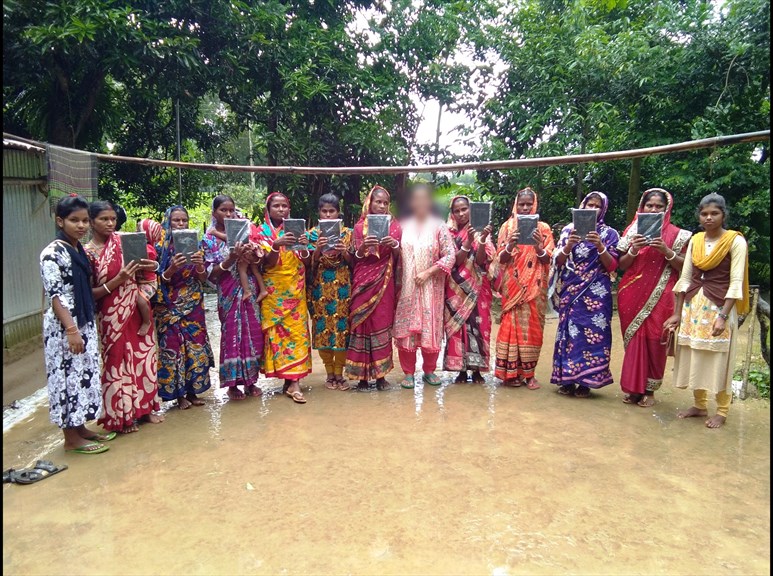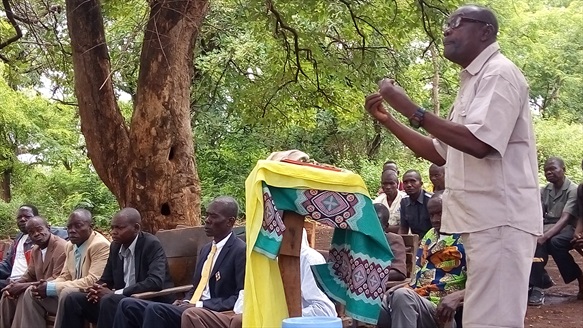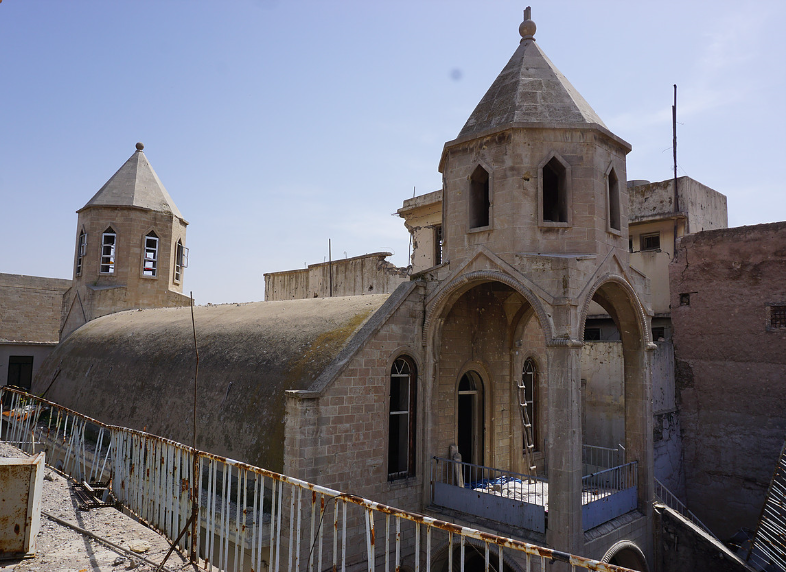World Watch List 2021

The emergency that dominated the globe during the past year — the novel coronavirus — also dominated the countries of the World Watch List published by Open Doors International today (Jan 13) and the lives of the estimated 340 million Christians who, it says, live under pressure within them. These are the trends that shaped its List for 2021:
1. COVID-19 exacerbates existing social, cultural, economic and other structural vulnerabilities
The pandemic has highlighted and exacerbated existing social, economic and ethnic vulnerabilities of millions of Christians worldwide. It appears to be a catalyst for often-hidden attitudes of oppression and repression to surface in discriminatory acts or expression, such as online hate speech.
In India, of more than 100,000 Christians receiving aid from Open Doors partners, 80% reported to World Watch List researchers that they were dismissed from food distribution points. Some walked miles and hid their Christian identity to get food elsewhere. Another 15% got food aid, but reported discriminations such as lack of daily work from either government, landowners or industry. Pre-pandemic, a government survey (2017-8)[1] found that unemployment runs deeper among Christians than among other religious groups – so refusal of food aid left whole communities destitute.
It wasn’t only in India; in at least Myanmar, Nepal, Vietnam, Bangladesh, Pakistan, Central Asia, Malaysia, North Africa, Yemen and Sudan, Christians in rural areas were denied aid. At times this was by government officials, more often it was by village heads and committees or others. Some reported food ration cards torn up or waved away.
In southern Kaduna, Nigeria, families from several villages said they received one sixth of the rations allocated to Muslim families. In Guinea-Bissau, when a state of emergency was imposed, some Christians said Muslim neighbours “complained” to the government about them, while in Guinea, one leader said church closures prompted followers of African Traditional religions to mock pastors.
Those who abandon a majority faith to follow Christ know they risk forfeiting all support from their spouses, families, tribes and communities as well as local and national authorities. If they lose income due to COVID-19, they can’t fall back on customary networks for survival.
Similarly, COVID-19 affected the livelihood of church leaders. Many are not paid salaries but expect financial support from their communities’ donations. When church services stop, donations drop – by about 40%, said leaders ranging from Egypt to Latin America. This also affects humanitarian assistance to their own communities, both inside and outside churches.
Some Christians, from areas ranging from sub-Sharan Africa to Latin America, said the pandemic meant there was less pressure to participate in, or contribute to, local rituals and festivals. At the same time, however, most converts said confinement to the home locked them in with those most antagonistic, even extremely hostile, to their beliefs. This domestic vulnerability especially affected minority women and children. For millions, work, education and other outside interests provide respite from scrutiny and attack, as well as from physical, emotional, verbal and psychological abuse at home. Among the Top 10 countries, the number of women reporting psychological violence increased, alongside a loss of contact with fellow believers.
Reports of the kidnapping, forcible conversion and forced marriage of women and girls increased. A typical case is that of devout Egyptian Christian Rania Abdel-Masih, a 39-year-old mother of three daughters, who volunteered for a well-known Christian-Muslim project. After disappearing in April en route to meet her sister, she turned up on Muslim Brotherhood-linked website videos wearing the niqab, saying she’d been a Muslim for 9 years. Looking anxious, she was clearly speaking under duress. Three months later, after media coverage and Coptic Church diplomacy, she was able to return to her family, insisting she’d never converted to Islam.

2. Violent Islamist militancy exploits COVID-19 restrictions to spread in sub-Saharan Africa
In the Sahel region immediately south of the Sahara Desert, Islamist extremism is fuelled by injustice and poverty. Jihadists exploit fragile governments’ failures; militias spread propaganda, recruitment and attacks. Some groups pledged to wage jihad against the “infidels” because, they say, it was because of them that “Allah punishes us all” with the pandemic.
Across sub-Saharan Africa, the Church faced up to 30% higher levels of violence than last year – unlike other parts of the world, where restrictions and curfews largely meant a drop in violence against Christians. Several hundred Nigerian mostly-Christian villages were either occupied or ransacked by armed Fulani herdsmen; sometimes fields and crops were destroyed in an apparent “scorched earth” strategy.
A UNHCR official[2] said that the central Sahel – Mali, Burkina Faso and Niger – is the epicentre of the world’s fastest-growing displacement and protection crisis. In Burkina Faso, until recently known for its inter-religious harmony, one million people – 1 in 20 of the population – are displaced (and millions more hungry) as a result of drought, as well as violence. Conflict prevented Christians in more than 1,000 villages from voting in November’s election. In Mali, Western Christian hostages are still held, and killed.
The devastating impact of COVID-19 helps to convince unemployed youths to exploit ethnic, tribal and religious conflicts over land, resources and politics. Mix in extremist Islamism in failing states where police and security forces do not protect, and there is impunity for violence. Trafficking in humans and arms is rife. Human Rights Watch reports that, despite COVID-19 closures, there were more than 85 attacks on education outlets in Burkina Faso, Mali and Niger between January and July 2020. Christians reported that lockdown made them “sitting targets,” as security forces appeared to collude with the marauders on motorbikes. As a result, self-defence militias proliferated, even as the jihadist groups splintered[3].
However, the leader of Nigeria-based Boko Haram, Abubakar Shekau, continues to build synergies between its factions, extremist Fulani militants and criminal gangs, exploiting failures of governance across northern Nigeria. Boko Haram and its splinter group, the lslamic State of West Africa, were responsible for about 400 violent incidents in Cameroon’s Far North – a 90% increase on the previous 12 months; 234 of those were against civilians[4].

In East Africa, Mozambique faces violence by a branch of Islamic State Central Africa Province, popularly called Al Shabaab but different from the Somali group. The Mozambique edition wants to impose Sharia law across the mineral-rich, but least developed northern province bordering Tanzania. Cabo Delgado has since 2017 suffered more than 1,150 deaths in 600 attacks, with more than 300,000 displaced[5]. Here, the group Anwar al Sunna is inspired by the mastermind behind the Nairobi and Dar-as-Salaam US Embassy bombings. It has also already attacked Christian villages across the border in Tanzania, where the autocratic President Magufuli won a landslide election victory in October. Tanzania’s population is one-third Muslim, and there was election violence in strongly-Islamic Zanzibar, so observers watch for signs of destabilization, which would greatly affect the Church in East Africa.
The Democratic Republic of Congo (DRC) is plagued by its own Islamic State-linked group, the Allied Democratic Forces (ADF). Earlier, it sought to overthrow the Ugandan government, but once it was driven into the DRC, it settled in North Kivu Province. Here ADF has almost total control over vast rural areas, where for years it’s attacked Christian-run schools and clinics, burned down churches and killed community leaders. A 2020 UN report estimates ADF – which has killed more than 1,000 DRC civilians since the start of 2019 – might have committed war crimes and crimes against humanity.
Ethiopia (60% Christian and 34% Muslim) is under pressure from ethno-political groups with religious undertones, and vulnerable to political Islam with powers such as Turkey, Saudi Arabia and Iran vying for regional influence (see below).
3. COVID-19 legitimises increased surveillance and restrictions by totalitarian and authoritarian govts
China maintains it moved decisively to contain COVID-19, but for its 97[6] million Christians, the cost in heavy restrictions – with surveillance reaching into their homes, tracking online and off-line interaction and even scanning their faces into the Public Security database – is high.
Of China’s estimated 570 million CCTV cameras, millions have advanced facial recognition software linked to its “Social Credit System” which also monitors perceived “loyalty” and any dissension from the Communist creed[7].
Reports from counties in Henan and Jiangxi provinces say such cameras are now in all state-approved religious venues. Many of these cameras are reported to be installed next to standard CCTV cameras, but they link to the Public Security Bureau, meaning artificial intelligence can instantly connect with other government databases.
In February, at the height of the epidemic, the Religious Affairs Bureau of the north-eastern province of Jilin demanded that religious departments across the province investigate house churches.
Encouraged by success in controlling COVID-19, local officials want to link health apps to incorporate social-credit points. As feared, social credits are already, in places, linked to religion.
Communist Party officials in Shanxi, Henan, Jiangxi, Shandong and other provinces have threatened to withdraw social-welfare benefits, including pensions, if Christians refuse to replace Christian imagery such as crosses with pictures of President Xi Jinping. One Christian on welfare apparently reported that officials told him that since he believed in God, he should ask Him for food instead of living off the Communist Party.
Churches that resort to online services are vulnerable to monitoring; even churches affiliated with the government-registered Three-Self Patriotic Movement and the China Christian Council were ordered to stop online services.
“The government monitors people across the country,” said the director of a government-approved church in the eastern province of Shandong. In his same city, when a woman took her child into a Three-Self church, captured on CCTV, officials immediately reprimanded the church.
The ban on under-18s from any religious activity has been in force since 2018. The “Sinicization” (or “China-fication”) of Christianity was amplified and extended 1 February 2020 by new rules that govern the organization of religion, selection of leaders and hiring staff[8].
Increasingly, both Three-Self and unregistered “house-churches” experience the confiscation of property and Christian materials including Bibles, as well as raids, fines and arrests of church leaders.
In late 2020, the Vatican extended by two years a 2018 agreement with the Communist Party. Details are secret but it is believed that it gives the party “the power to appoint Catholic bishops, pending the Pope’s final approval”. Before the extension, priests in Jiangxi province were forbidden from “engaging in any religious activity in the capacity of clergy”, after they refused to join the government-approved Catholic Patriotic Association. They were monitored in their homes. To avoid detection, some underground churches hold Mass only once every six months.
The Bishop of the “underground” Catholic Church in Mindong diocese, long harassed by the authorities, resigned to make way for his government-approved successor, who then promptly led a delegation of 33 priests to learn about the “Sinicization” of religion.
This includes reinterpreting the Bible guided by Socialist core values[9]. In Shandong and increasingly elsewhere, churches must display government-prepared posters with Bible verses illustrating the 12 principles: prosperity, democracy, civility, harmony, freedom, equality, justice, the rule of law, patriotism, dedication, integrity and friendship.
A registered church reported it was forbidden to re-open after the pandemic because the priest’s sermon, about the heroes of pandemic prevention, had to be pre-approved – it wasn’t.

This so-called “rectifying’ of religion has resulted in a twisted re-telling of a New Testament incident, when religious leaders dragged a woman in front of Jesus, before intending to stone her for adultery. He challenged them and they left. But in an official ethics textbook, Jesus waits for her accusers to leave, then stones the woman himself, saying “I too am a sinner. But if the law could only be executed by men without blemish, the law would be dead.”
As China’s global influence spreads its “soft power,” not least via its “Belt and Road Initiative,” China exports its all-pervasive systems for “protection” and “security” – now seen as they control the Uighur population in Xinjiang. Chinese companies, including Huawei, supply AI surveillance technology to 63 countries, some known for human rights violations and targeting of ethnic and religious minorities, including Myanmar, Laos, Iran, Saudi Arabia and Venezuela.
4. Nationalism driven by majority religious identity rises in countries such as India and Turkey
Amidst a surge of Hindu nationalism, Indian Christians are daily pressured by strident propaganda. A Hindu temple is being built on the site of the Babri mosque – which Hindus insist was built over Lord Ram’s birthplace. Hindu mobs demolished the mosque in 1992 and Prime Minister Narendra Modi made construction of the temple a key election promise. Now in his second term, it’s a huge success for his nationalist support base because the message “To be Indian, you must be Hindu” means mobs continue to attack and harass Christians, as well as Muslims.
Millions who follow these faiths fear that contact-tracing apps such as Aarogya Setu will have “function creep;” another app, already in use, can predict age, gender and race. India’s data protection bill does not cover surveillance. Indeed, it has provisions to allow the government to bypass protection standards and even consent in circumstances such as national security or crime investigation.
India also continues to block the flow of foreign funds to many Christian-run hospitals, schools and church organizations.
President Erdogan of Turkey likewise has fulfilled the expectations of his popular vote over the leading religious site in his country. Haghia Sophia, the biggest structure in the world when built as an Orthodox Christian cathedral for Roman Emperor Justinian, was turned into a mosque after the 1453 fall of then-Constantinople to the Turks. The founder of secular Turkey, Ataturk, decreed it should be a museum. But in July, Erdogan persuaded a court to make it a mosque again, strengthening Turkish nationalism. A month later, much less publicised, another UNESCO World Heritage church, Chora – was changed from a museum to a mosque.
Near Turkey’s southeast border in January 2020, a Chaldean Christian couple was abducted from their isolated village, whose centuries-long Christian history had been destroyed by Turkish army attacks and Kurdish discrimination. The couple returned to their home a decade ago. Having resisted the authorities’ repeated intimidation to leave, they were the last Christians left. The wife’s body was found in March; the husband is still missing.
Turkish influence spreads beyond its borders, most notably in its backing of Azerbaijan in its conflict with Armenia over the largely Christian enclave of Nagorno-Karabakh. During the conflict, Armenians and Chaldean Christians in the Turkish capital, Ankara, were beaten while others in Istanbul were threatened by right-wing mobs, showing how century-long inter-religious animosity can be stirred up.
In northern Iraq, Turkey continues to attack the Kurdistan Workers Party, which it considers a terrorist organization. At least 25 Christian villages have been emptied as a result of such attacks since the beginning of 2020.[10] Many Christians, who fled Nineveh Plains and Mosul during Islamic State’s control, moved to the Dohuk area only to endure attacks by Turkey. This makes their situation additionally vulnerable. Livelihoods as well as security remain key for Christians who have now returned to the Nineveh Plains.

Turkey’s relocation of its refugees from other parts of Syria back into northeast Syria continues to change the demographics of the region. This leaves Kurdish Christian converts from Islam especially vulnerable, as well as the historic faith communities. In October 2019, Turkish air attacks and shelling, as well as attacks by Turkish forces together with mercenary Syrian Islamist groups, forced hundreds of Christians to flee. In 2020, the UN Commission of Inquiry on Syria said “The Turkey-backed Syrian National Army may have committed war crimes of hostage-taking, cruel treatment, torture and rape” and called on Turkey to halt violations committed by armed groups under its control, including killings, kidnappings, unlawful transfers, seizures of properties and forcible evictions. (Properties of Christians were reported marked with an “N”, in the same way as Islamic State did in 2014).
Turkey also has strong geo-strategic interests in Libya – not least in its offshore oil and gas – as it’s key to regional expansion based on ambitions for a resurgent Ottoman Empire. Turkey is known to support local jihadist factions, as well as for bringing in more than 4,000 Syrian jihadists.
5. COVID-19 helps Central & Latin American organized criminal groups to consolidate their control
In Mexico, the fight to contain the coronavirus strains national and local institutions’ ability to deal with organized crime; across four regions, narco-trafficking groups imposed their own COVID-19- related curfews. Catholic bishops, priests and Protestant pastors who challenge them can be extorted, ambushed, robbed, shot and even killed. To add insult to injury, many narco-groups build political and social capital by meeting the gap in government services of food, education and jobs. In some provinces such as Guerrero, despite the government ban on religious services during quarantine, criminal groups threatened to kill priests who did not perform them.
In Colombia, in several places where guerrillas and paramilitaries control rural areas, Christian pastors were forced to guard the entry and exit points, to prevent virus transmission. This then affected the pastors’ credibility with their congregations.
There was a similar pattern in El Salvador and Honduras (both outside the Top 50 but nevertheless score “high” levels of persecution this year). Here, before the pandemic, illegal groups ruled territories. In El Salvador, groups such as MS13 are known to weaponize rape. This year, there have been reports of the rape of Christian pastors’ daughters as a strategy to destroy the families.
Finally, some good news:
Sudan has abolished the death penalty for apostasy (i.e., renouncing Islam). Its new constitution guarantees freedom of religion, omits sharia as its primary source of law and no longer specifies Islam as its state religion – although after 30 years there is still a lot of resistance to such sweeping changes; changing a constitution is easier than changing a cultural mindset. But life for Sudan’s 6% Christians is improving, such as when a court found eight church leaders innocent of charges that have hung over them for three years.
Iraq: After surviving the occupation of Mosul by Islamic State militants, a group of young Muslim volunteers have, since 2017, been consistently cleaning up destroyed churches and homes, saying they want to encourage displaced Christians to return and stay, because their history is rooted in that part of the Middle East.
[1] https://www.hindustantimes.com/india-news/unemployment-rate-among-christian-men-highest-govt/story-BqMtQpHQUNLoqlBxmbiWsO.html)
[2] Ioli Kimyaci, UNHCR 20th Oct, 2020 https://www.unhcr.org/news/press/2020/10/5f7d72a04/unhcr-condemns-killing-25-internally-displaced-people-burkina-faso.html
[3] https://www.bbc.co.uk/news/world-africa-52614579
[4] https://africacenter.org/spotlight/boko-haram-violence-against-civilians-spiking-in-northern-cameroon
[5] https://acleddata.com/tag/mozambique/
[6] Open Doors’ estimate
[7] Digital Authoritarianism, China and COVID (lowyinstitute.org); The Global Expansion of AI Surveillance – Carnegie Endowment for International Peace; Designing Alternatives to China’s Repressive Surveillance State – Center for Security and Emerging Technology (georgetown.edu)
[8] (International-LaCroix, 7 February 2020).
[9] (China Scope, 1 January 2020)
[10] AsiaNews, 15 September 2020